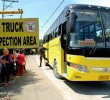DAVAO CITY – Party-list group Anakpawis today criticized a bill institutionalizing the government’s multibillion peso anti-poverty program, Conditional Cash Transfer (CCT).
In a statement, Anakpawis Partylist Rep. Fernando Hicap said institutionalizing it as dole out program only produces more Filipino mendicants. Hicap added that the program does not address the cause of poverty.
Hicap said, House Bill 4994 which seeks the institutionalization of CCT, “is basically an open invitation for the government to spend billions of tax payers’ money in a program that does not address the root cause of poverty.”
“From 2011 to 2014, the CCT budget allocation was already totaled at P216 billion, but despite of its gargantuan budget, it failed to make a substantial effect on the lives of poor Filipino people,” he said.
Based on the 2014 4Ps (Pantawid Pamilyang Pilipino Program) Impact Evaluation Report of the agency, it claimed that the program improved the beneficiary families’ access to services such as health and education.
Hicap said that it was being offset by the fact that data from the Philippine Statistics Authority (PSA) showing that poverty incidence increased from 24.6 percent of the total population during the 1st half of 2013 to 25.8 percent in 2014, or from 18.8 percent of the total number of families to 20 percent for the same period. Based on a projected population for 2013 of 99.3 million, the said increase reflects 1.2 million additional poor Filipinos.
Hicap also cited the 2012 impact evaluation report for 4Ps where children age 12 posted near 100 percent enrollment in schools. The figure, however, dropped very sharply to 45 percent and 65 percent for those ages 15 and 17 respectively.
According to Ibon Foundation jobs situation has gotten worse with virtually unchanged unemployment amid a drastic increase in underemployment. The number of underemployed Filipinos increased by almost a million or 933,000 to eight million in July 2015 from seven million in the same period in 2014. The underemployment rate of 20.3 percent is higher than the 18.8 percent in 2010 at the start of the Aquino administration and the highest in a decade.
The latest government data said that the share of non-regular and agency-hired workers rose from 37 to 44 of every 100 Filipino workers from 2008 to 2012. The share of regular employees to total employment, meanwhile decreased from 72 to only 56 of every 100 Filipino workers.
IBON estimates the number of underemployed by at least one million, and the number of merely part-time workers by at least 1.5 million. (davaotoday.com)










